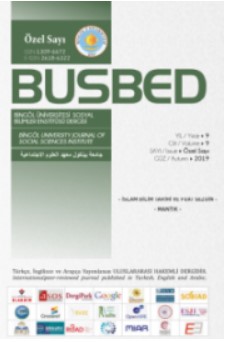FÂRÂBÎ’DE BEŞ TÜMEL KAVRAM
FIVE UNIVERSAL CONCEPTS IN ALFARABI
Author(s): Kamil KömürcüSubject(s): Metaphysics, Logic, Philosophy of Middle Ages, 6th to 12th Centuries
Published by: Bingöl Üniversitesi Sosyal Bilimler Enstitüsü
Keywords: Logic; Aristotle; Alfarabi; Eisagoge; Five Universal;
Summary/Abstract: Great Islamic philosopher Alfarabi has put forward remarkable views on philosophical thought from logic to philosophy, from physics to metaphysics. His contributions to the field of logic have always had a great impact. Fârâbî because of his studies about logic was called “al-mu‘allim al-thânî” in the sense of “second teacher” after Aristotle, who was the “first teacher”. Because Alfarabi established logic science into the Arabic language. He did this by finding the Arabic equivalents of Greek logic terms. This is not a simple translation activity; but re-conceptualization of logic in Arabic language. In that respect, establishing a science in another language means reestablishing that science in itself. Alfarabi successfully applied this conceptualization process for every subject of logic as a whole.
Journal: Bingöl Üniversitesi Sosyal Bilimler Enstitüsü Dergisi (BUSBED)
- Issue Year: 9/2019
- Issue No: Sp. Issue
- Page Range: 261-274
- Page Count: 14
- Language: Turkish

